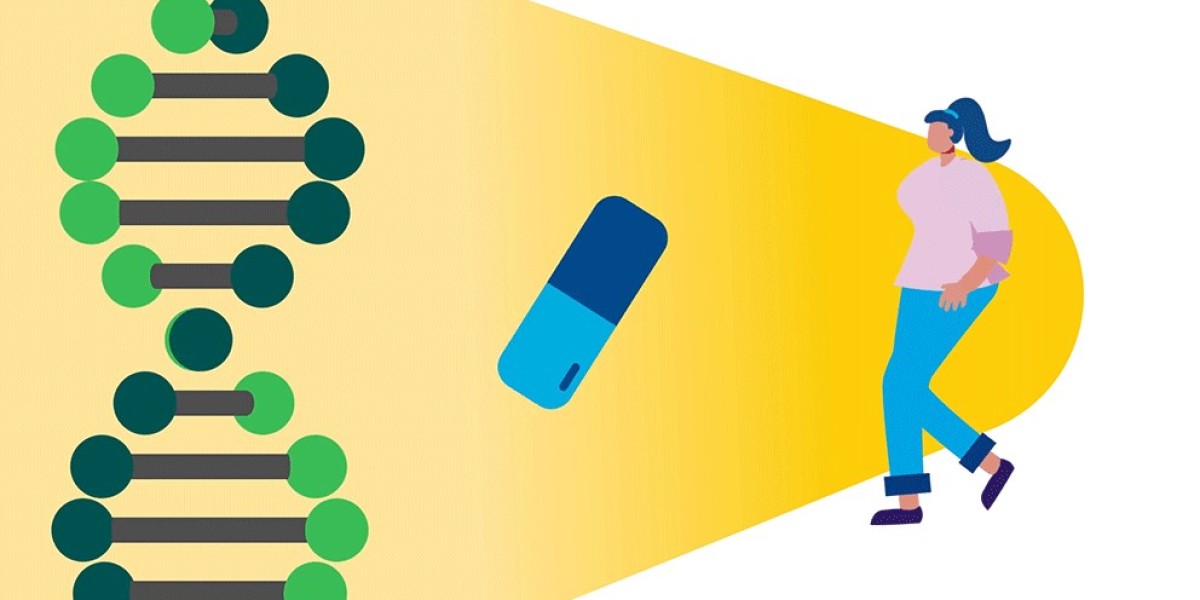Pharmacogenetic testing has emerged as a groundbreaking tool in modern healthcare, helping patients and clinicians understand how genetics influence medication response. By analyzing DNA, providers can identify which drugs are most effective and which may cause adverse reactions. While this science is relatively new, interest is growing quickly—especially among people seeking personalized treatment for mental health, chronic pain, and other complex conditions. But with innovation comes an important question: what is the cost of pharmacogenetic testing today, and is it worth the investment?
Understanding Pharmacogenetic Testing
Pharmacogenetic testing, sometimes referred to as PGx testing, examines specific genetic variations that influence how a person’s body processes medications. For example, two people might take the same antidepressant, but only one experiences relief while the other develops side effects. This difference can often be explained by genetic factors.
For many patients, understanding how long does genetic testing take and what the testing involves is just as important as knowing the cost. Typically, the process includes a cheek swab or blood draw, laboratory analysis, and interpretation by a healthcare provider. Results can influence prescribing decisions across mental health, pain management, cardiology, and oncology.
Current Cost of Pharmacogenetic Testing
The cost of pharmacogenetic testing varies widely depending on the provider, insurance coverage, and the scope of the test. On average in the United States, the price ranges from $300 to $2,000. Some broad panels that screen for multiple genes can be on the higher end, while focused tests for specific drug categories may be more affordable.
Insurance coverage is inconsistent. Some insurers recognize the long-term value of avoiding medication trial and error and may cover part or all of the cost. Others classify the test as optional and require patients to pay out of pocket. Understanding how long does genetic testing take is also key for patients weighing cost and benefit—results often return in one to three weeks, depending on the lab.
Factors That Influence Cost
Type of Test Ordered
A single-gene test to determine response to one medication will be cheaper than a multi-gene panel. Comprehensive panels provide a broader picture of drug metabolism but come at a higher price.
Healthcare Setting
Testing through a hospital or specialty clinic may cost more than ordering through a direct-to-consumer lab. However, medical settings often provide better integration with care plans, which is critical for accuracy.
Insurance and Reimbursement
Coverage varies by insurer and medical necessity. Some patients find that when tests are tied to conditions like depression, chronic pain, or cardiovascular disease, insurers are more likely to contribute.
Additional Services
Interpretation by a genetic counselor or pharmacist may add to the total cost. However, these services ensure that results are properly applied to treatment decisions. For patients asking how long does genetic testing take, professional guidance helps them make sense of results once they arrive.
Why the Cost Is Worth Considering
Medication trial and error can be expensive and emotionally draining. Failed prescriptions mean wasted copays, additional doctor visits, and unnecessary suffering. For example, patients exploring how often do you get ketamine infusions for pain may already be investing heavily in advanced therapies. Pharmacogenetic testing can potentially reduce wasted resources by targeting the most effective options sooner.
The upfront cost may appear high, but when viewed in terms of long-term healthcare savings and improved quality of life, many patients find it worthwhile. Particularly for conditions such as depression or chronic pain, where patients often cycle through multiple treatments, genetic testing can provide life-changing clarity.
Comparing Costs: Testing vs. Ongoing Treatments
Patients dealing with chronic conditions often compare testing costs against ongoing therapies. For example, someone exploring how often do you get ketamine infusions for pain may spend hundreds to thousands of dollars per year on treatment. In this context, a one-time genetic test is often less expensive and offers lasting value.
Similarly, when weighing how long does genetic testing take against the delays caused by ineffective medications, many find the time and money spent on testing a more efficient choice.
The Future of Pharmacogenetic Testing Costs
As technology advances, the cost of pharmacogenetic testing is expected to decrease. Just as whole-genome sequencing has dropped dramatically in price over the past decade, pharmacogenetic testing is likely to become more accessible. Wider adoption by insurance providers will also help.
Moreover, as more clinical evidence demonstrates the effectiveness of personalized prescribing, testing will move from optional to essential in many medical specialties. Patients already asking how often do you get ketamine infusions for pain or wondering how long does genetic testing take will likely see this integrated into routine care in the near future.
Conclusion
Pharmacogenetic testing represents an investment in better, safer, and more effective healthcare. While the cost today ranges from $300 to $2,000 depending on scope and coverage, the potential savings in time, money, and emotional stress are significant. For patients navigating complex treatments—such as wondering how often do you get ketamine infusions for pain or how long does genetic testing take—testing provides essential clarity. With time, costs will likely decline, and accessibility will improve. For those seeking personalized mental health and pain management strategies, the insights from testing can be invaluable. Ultimately, integrating genetic insights into treatment planning is not just about cost—it’s about long-term health outcomes, and clinics like Massachusetts Mind Center are helping lead the way.
FAQs
1. Is pharmacogenetic testing covered by insurance?
Coverage depends on the insurer and medical necessity. Some cover it fully, while others require out-of-pocket payment.
2. How long does genetic testing take?
Most tests return results in one to three weeks, depending on the laboratory and panel size.
3. How much does pharmacogenetic testing usually cost?
The average cost ranges from $300 to $2,000, with variations based on provider and scope.
4. Can pharmacogenetic testing help with pain management?
Yes, it can guide providers toward medications that are more effective and less risky for pain treatment.
5. How often do you get ketamine infusions for pain if genetic testing is done?
Pharmacogenetic testing doesn’t determine frequency of infusions, but it can help optimize accompanying medications for better outcomes.








